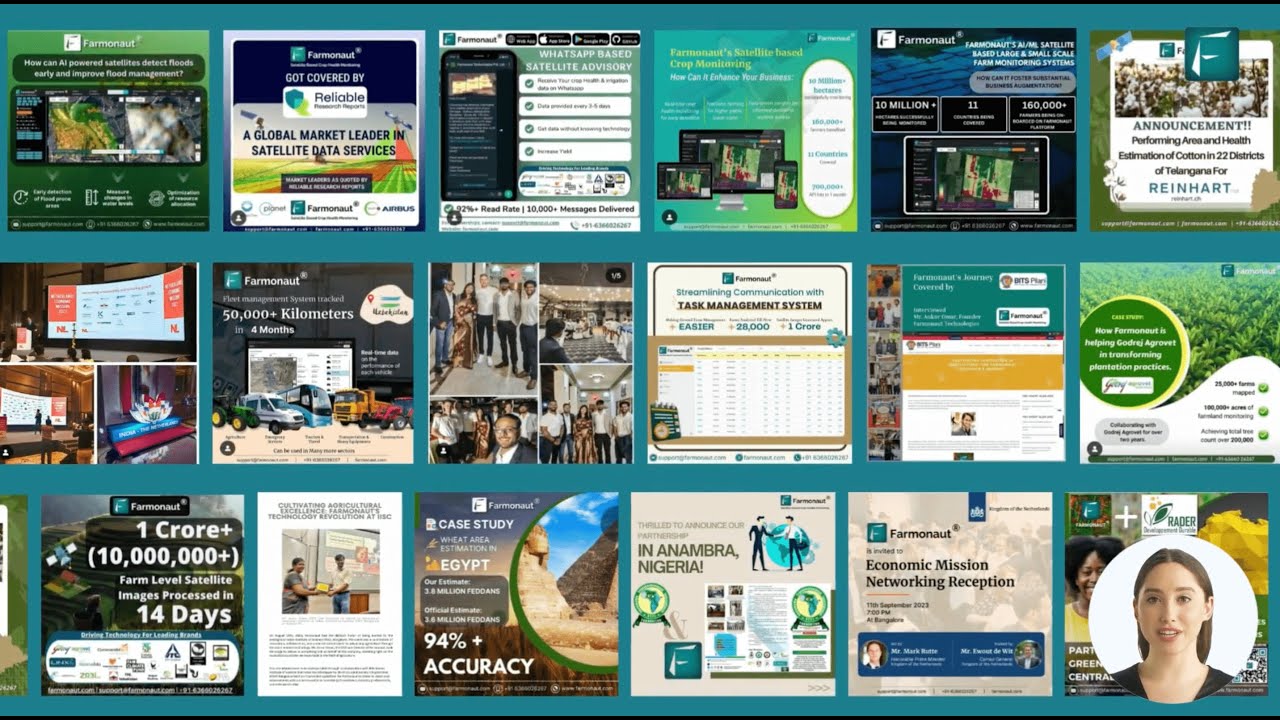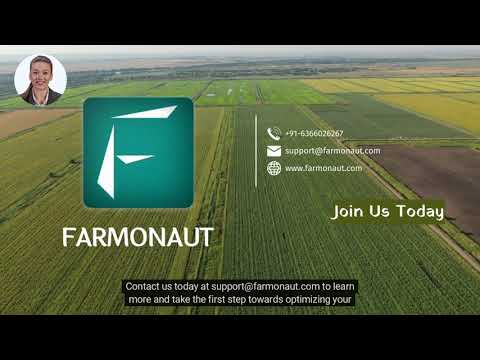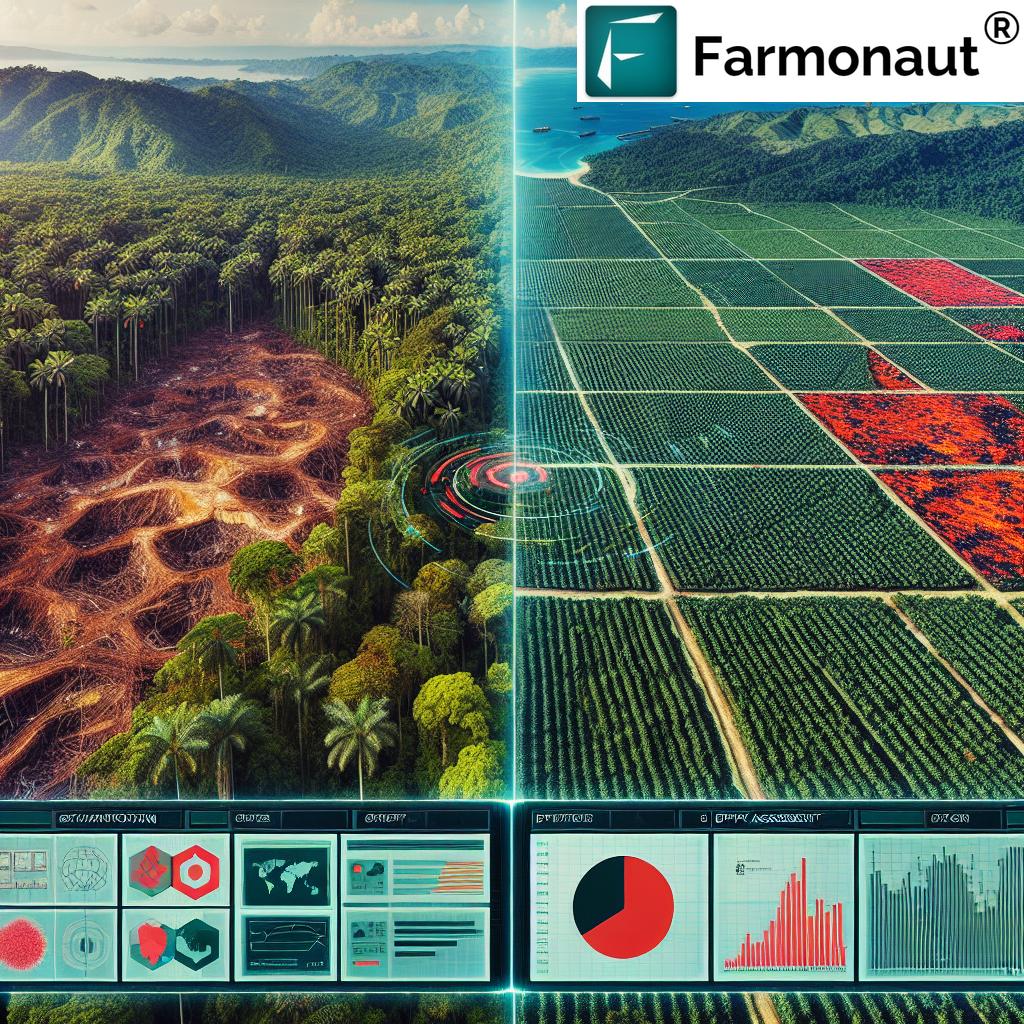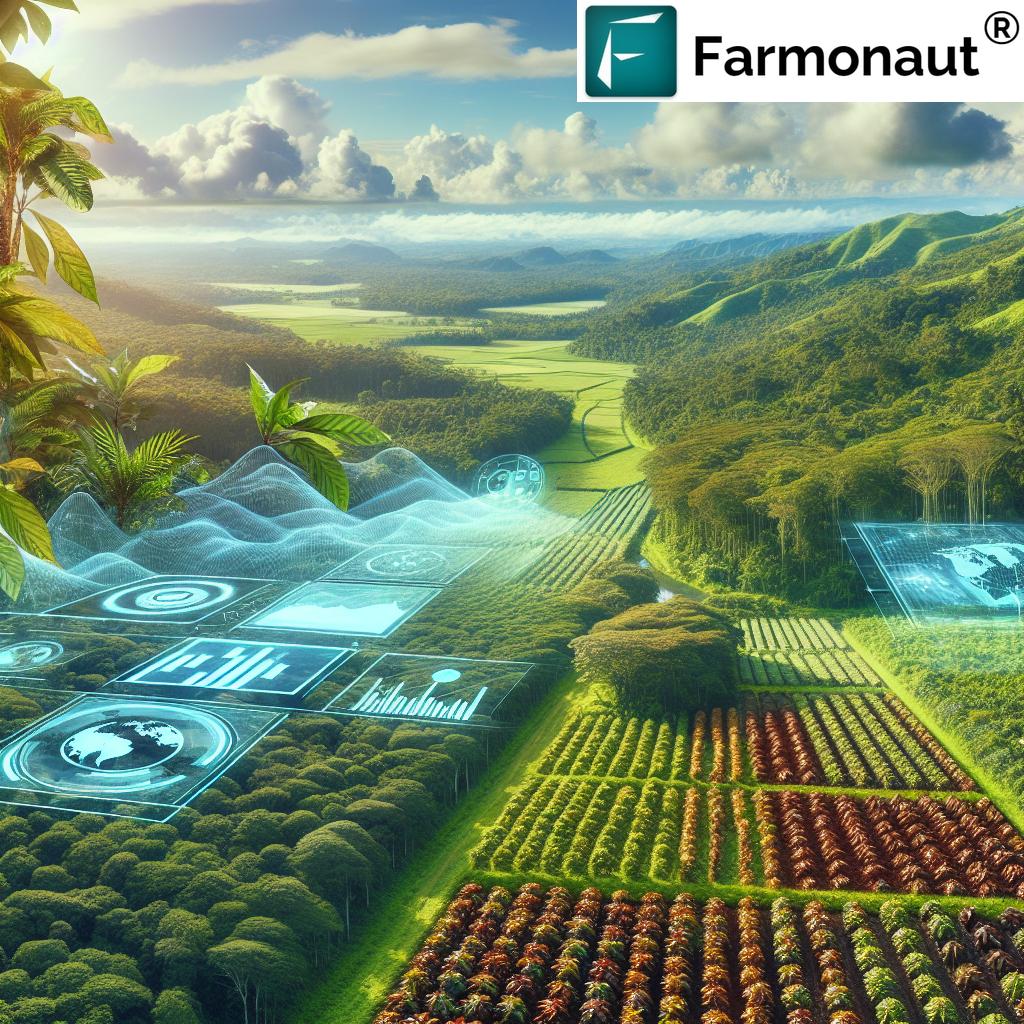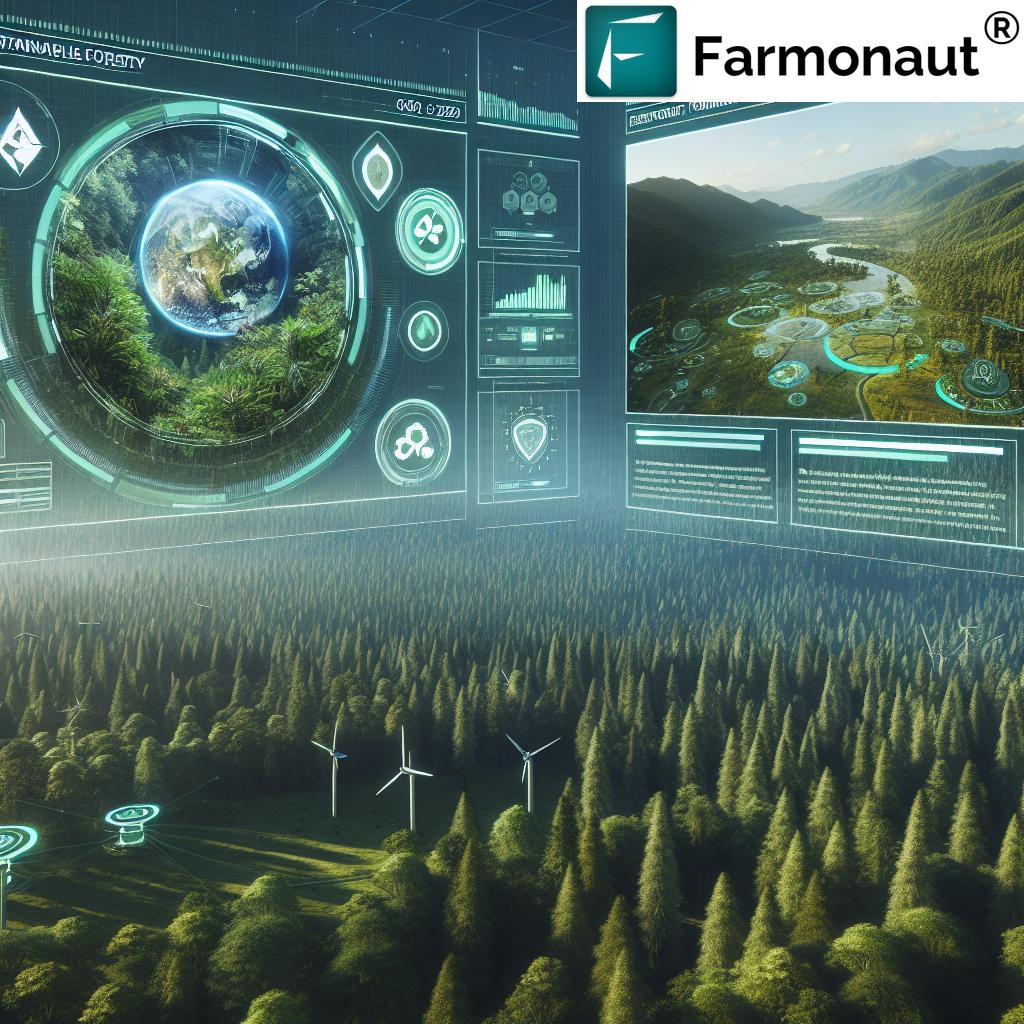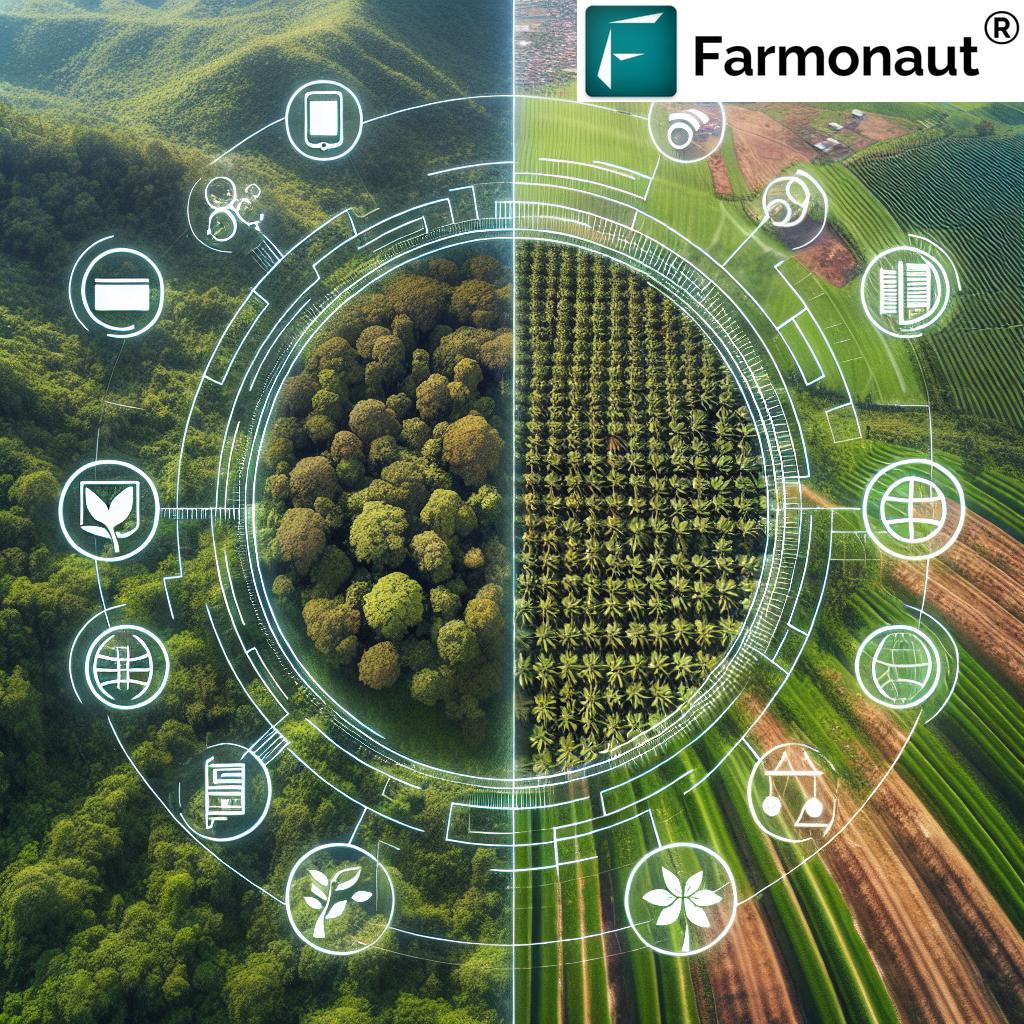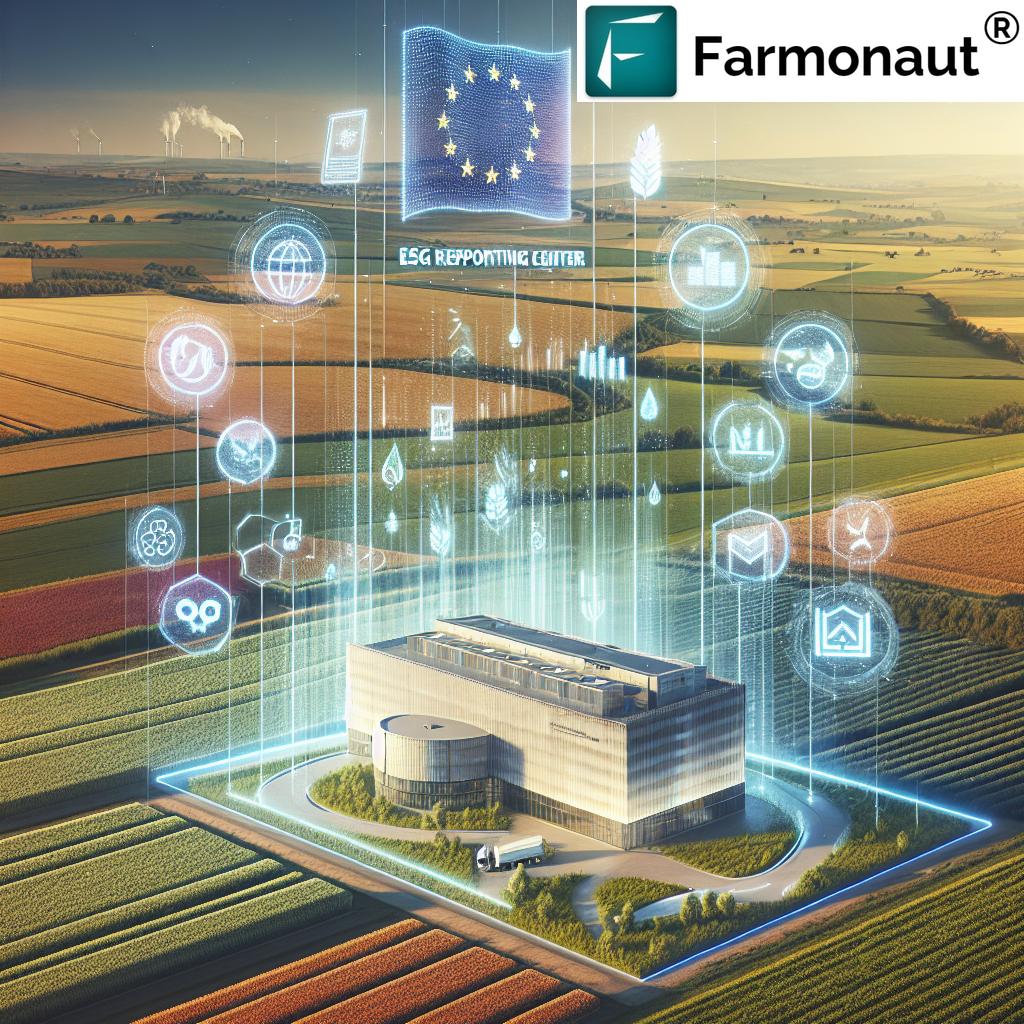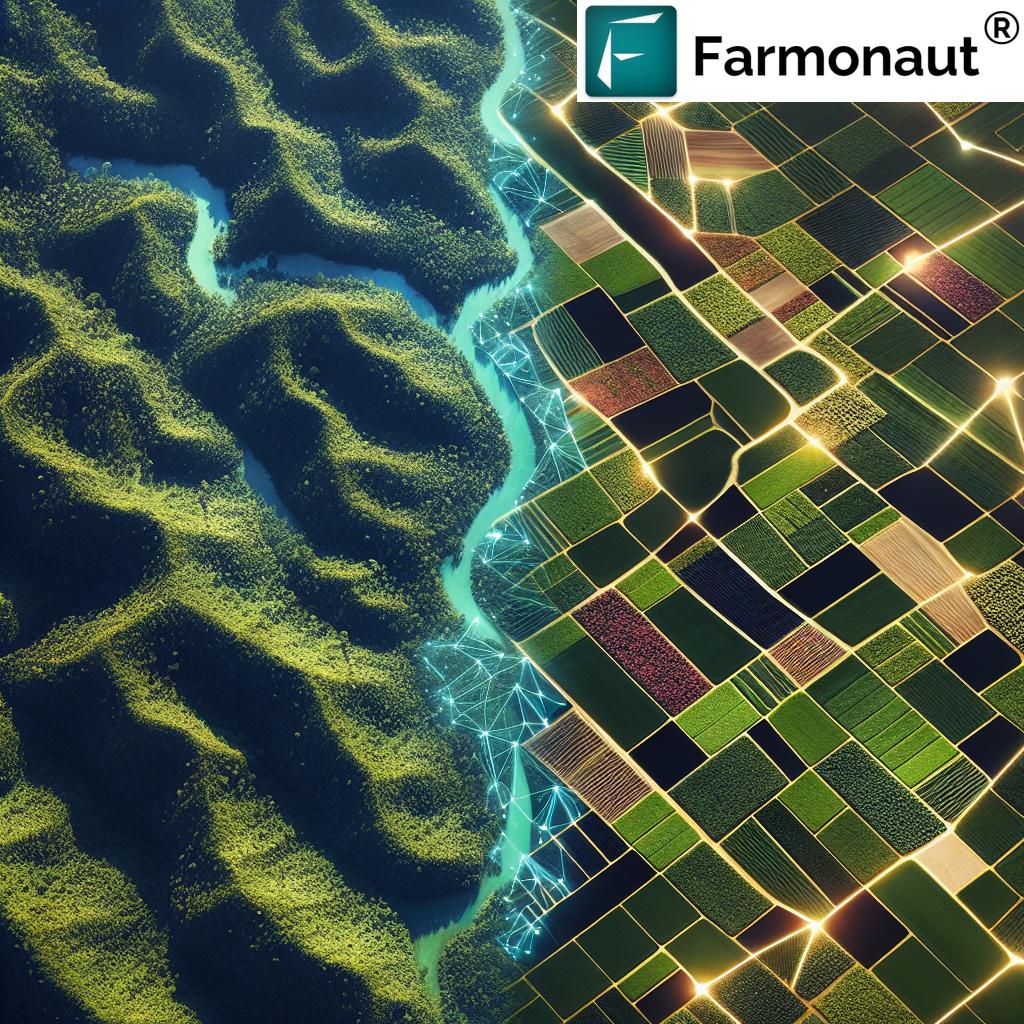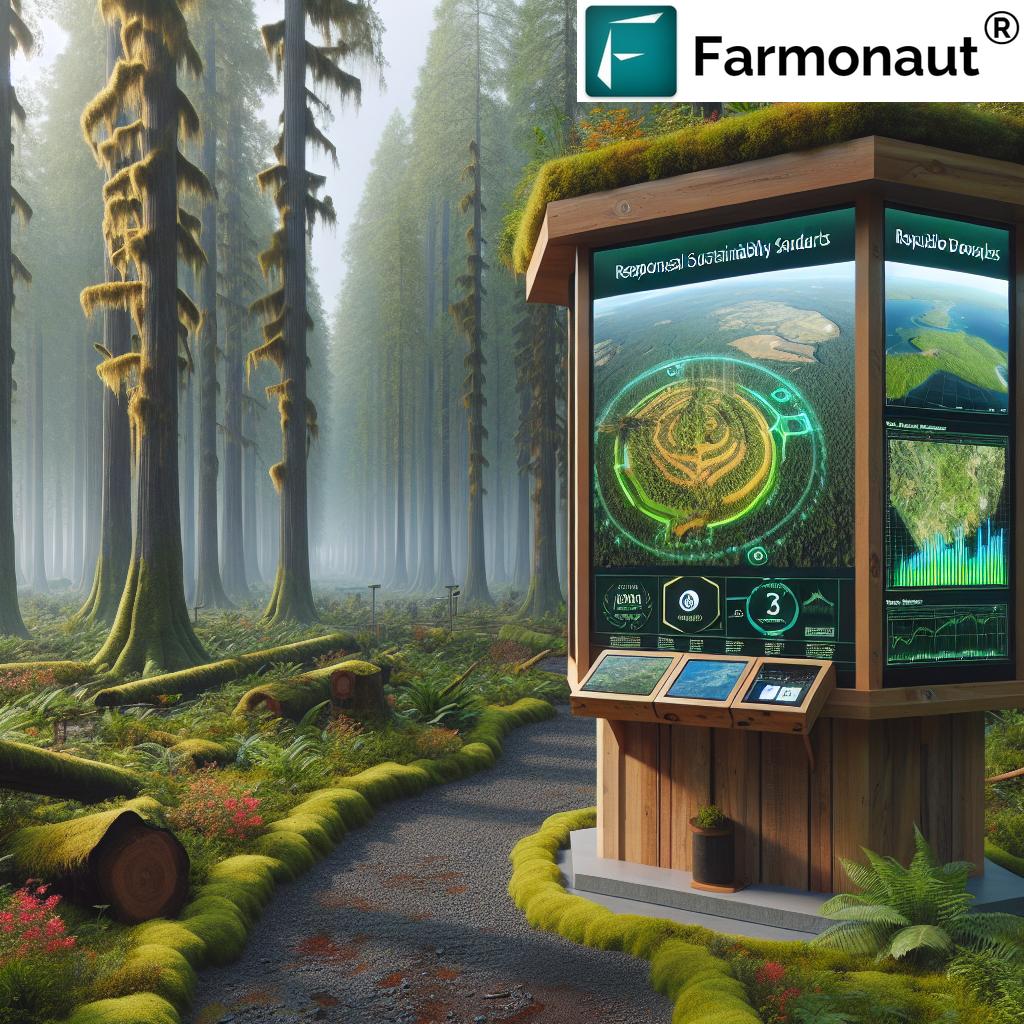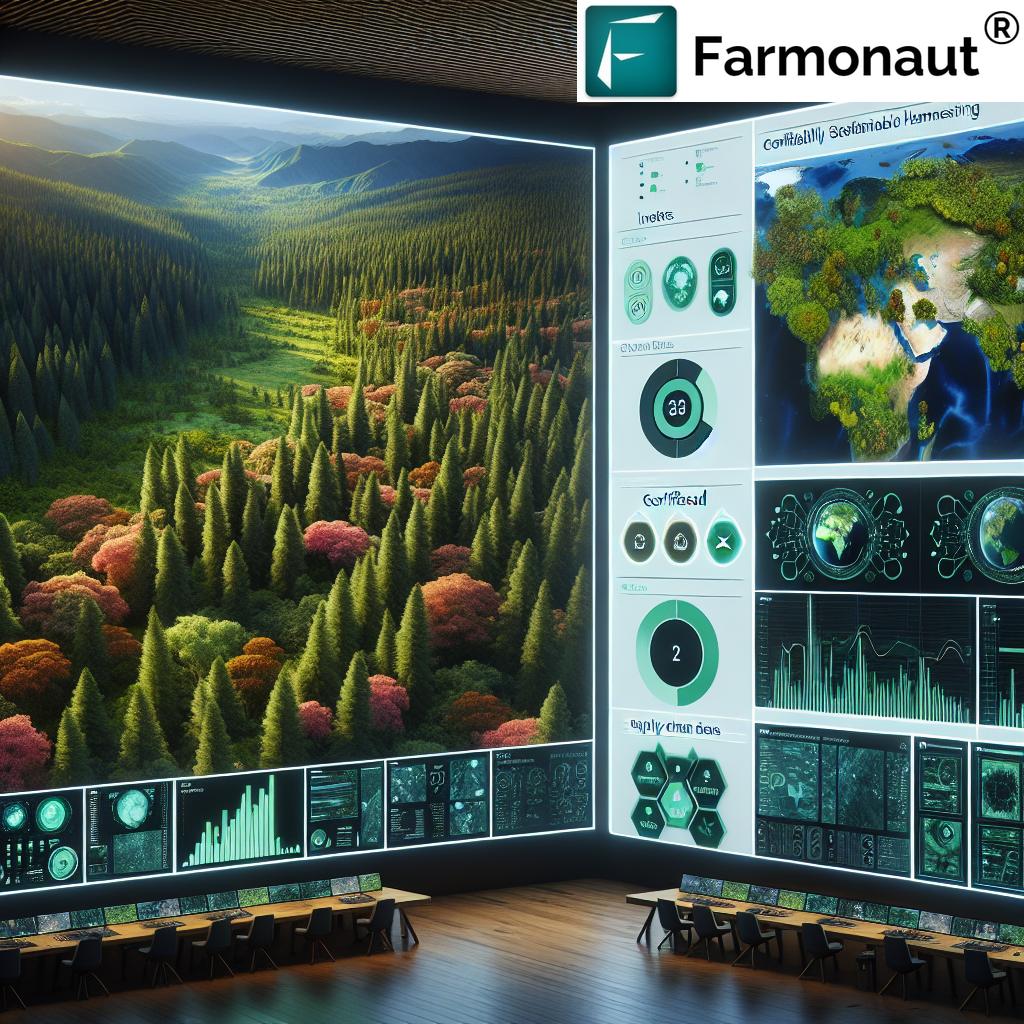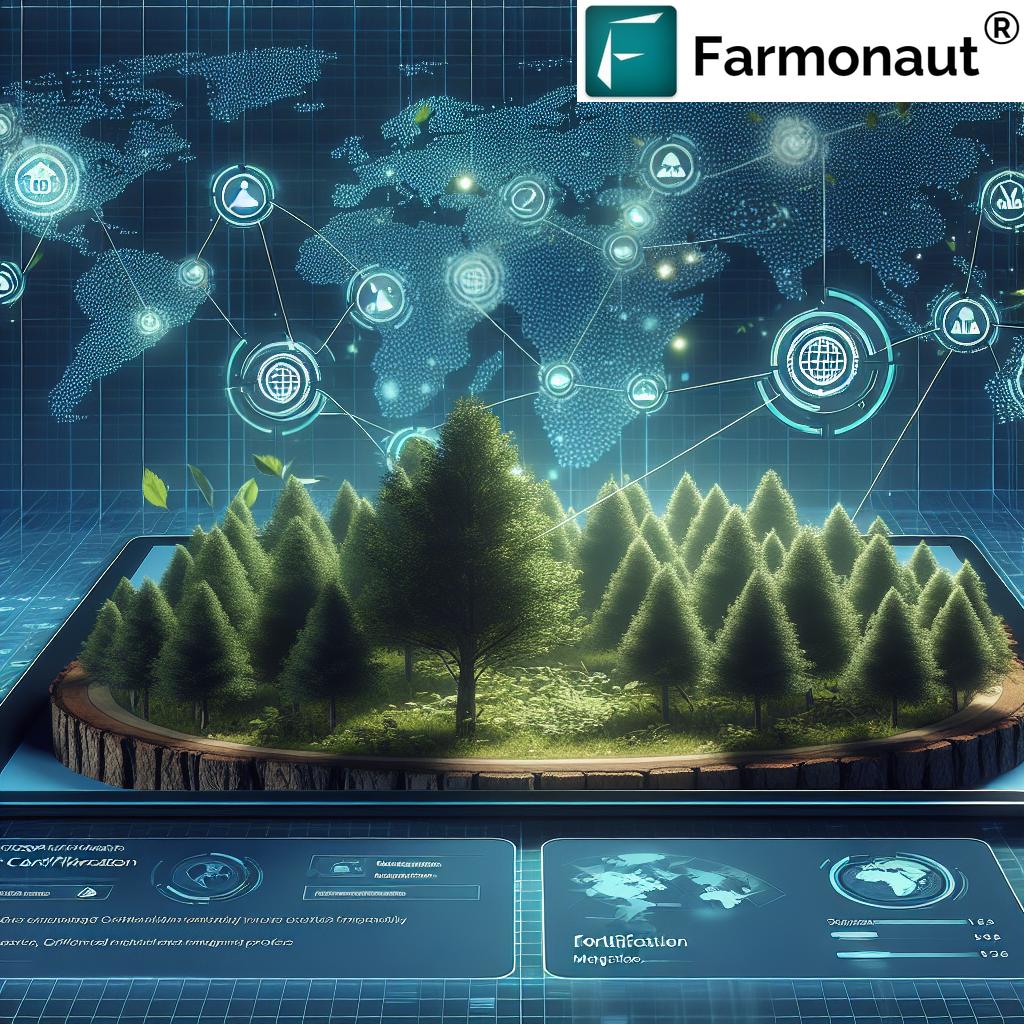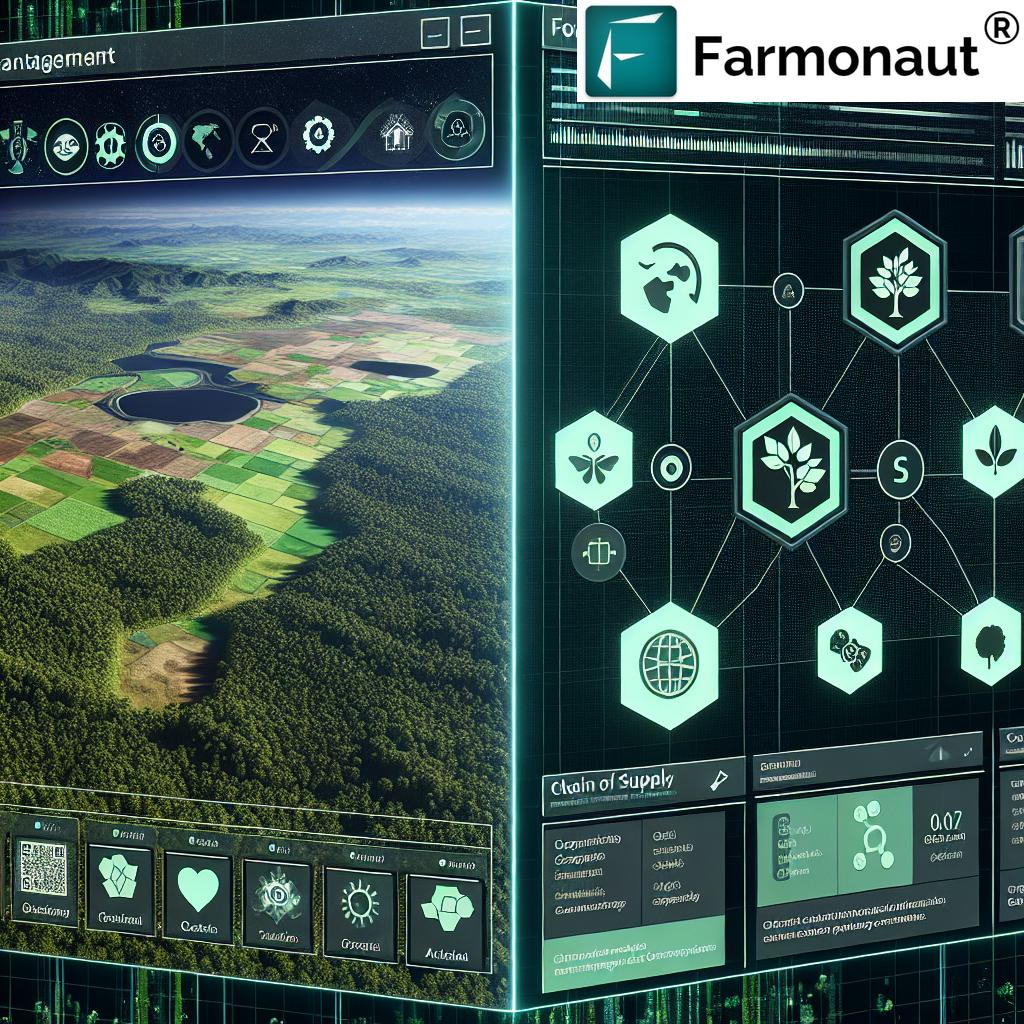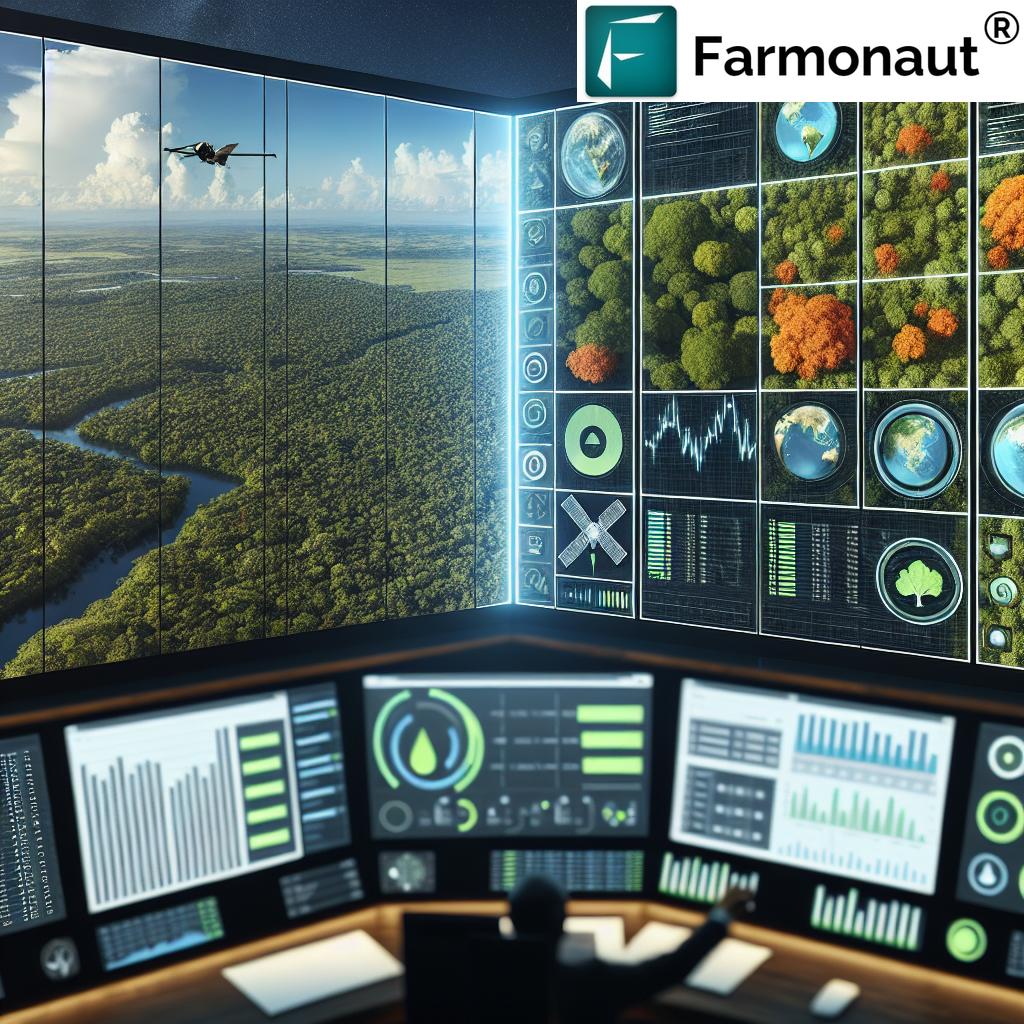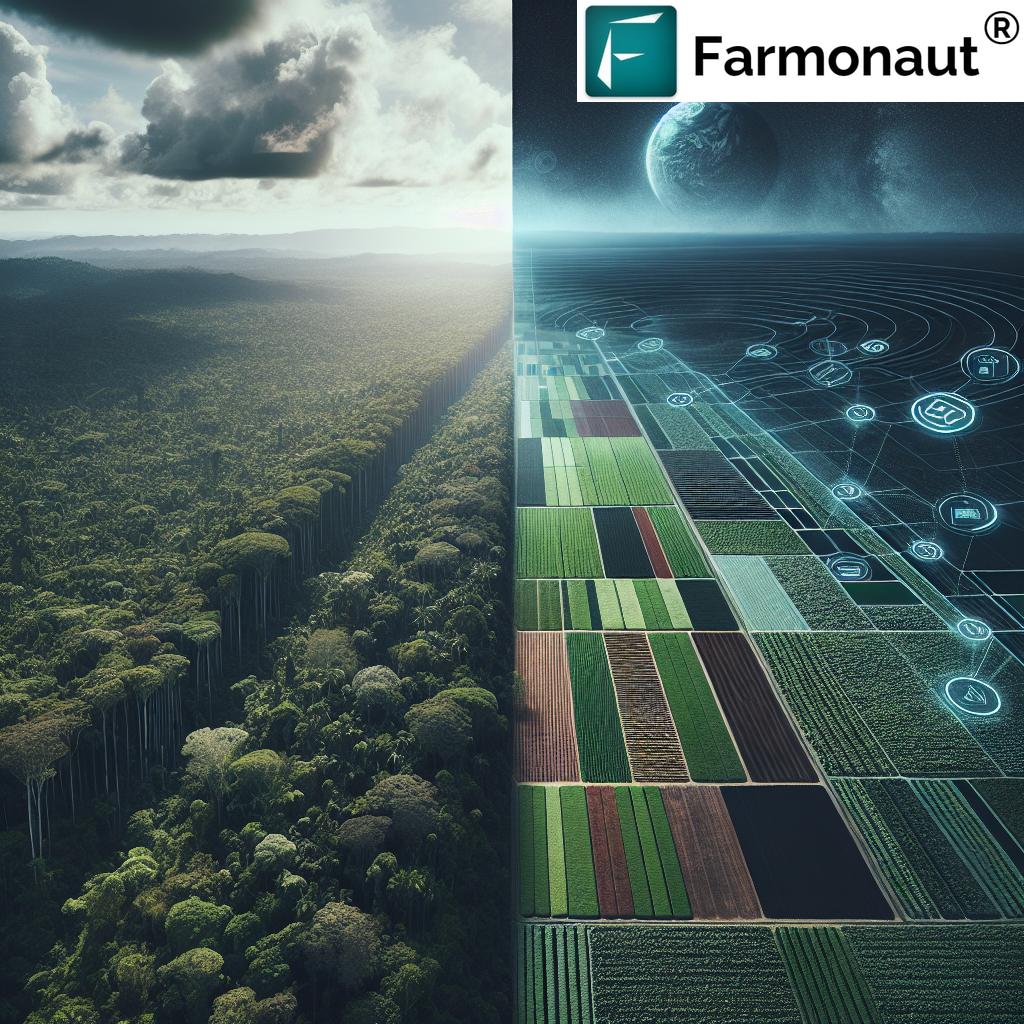EU Deforestation Regulation: How Farmonaut’s GIS Technology Drives Sustainable Agriculture and Forest Conservation
“The EU Deforestation Regulation targets 6 key agricultural products, including soy, palm oil, and timber, to combat commodity-driven deforestation.”
As we stand on the precipice of a new era in global environmental policy, the EU Deforestation Regulation (EUDR) emerges as a groundbreaking initiative to combat commodity-driven deforestation. At Farmonaut, we recognize the pivotal role that advanced Geographic Information System (GIS) technology plays in supporting sustainable agriculture practices and forest conservation efforts. Our innovative solutions are poised to revolutionize how businesses adapt to these stringent environmental responsibilities, ensuring compliance and driving positive change in the agricultural sector.
Understanding the EU Deforestation Regulation
The EUDR represents a significant shift in global environmental policy, aiming to eliminate deforestation from supply chains of key agricultural products. This regulation mandates that companies ensure their products are deforestation-free, placing a spotlight on commodities such as soy, palm oil, timber, coffee, cocoa, and rubber.
- Focuses on eliminating commodity-driven deforestation
- Mandates deforestation-free supply chains for key products
- Emphasizes transparency and collaboration among stakeholders
The implementation of the EUDR signifies a global shift towards agricultural sustainability and forest conservation. It reflects the growing awareness of the critical link between deforestation and climate change, pushing companies to prioritize environmental responsibility in their operations.
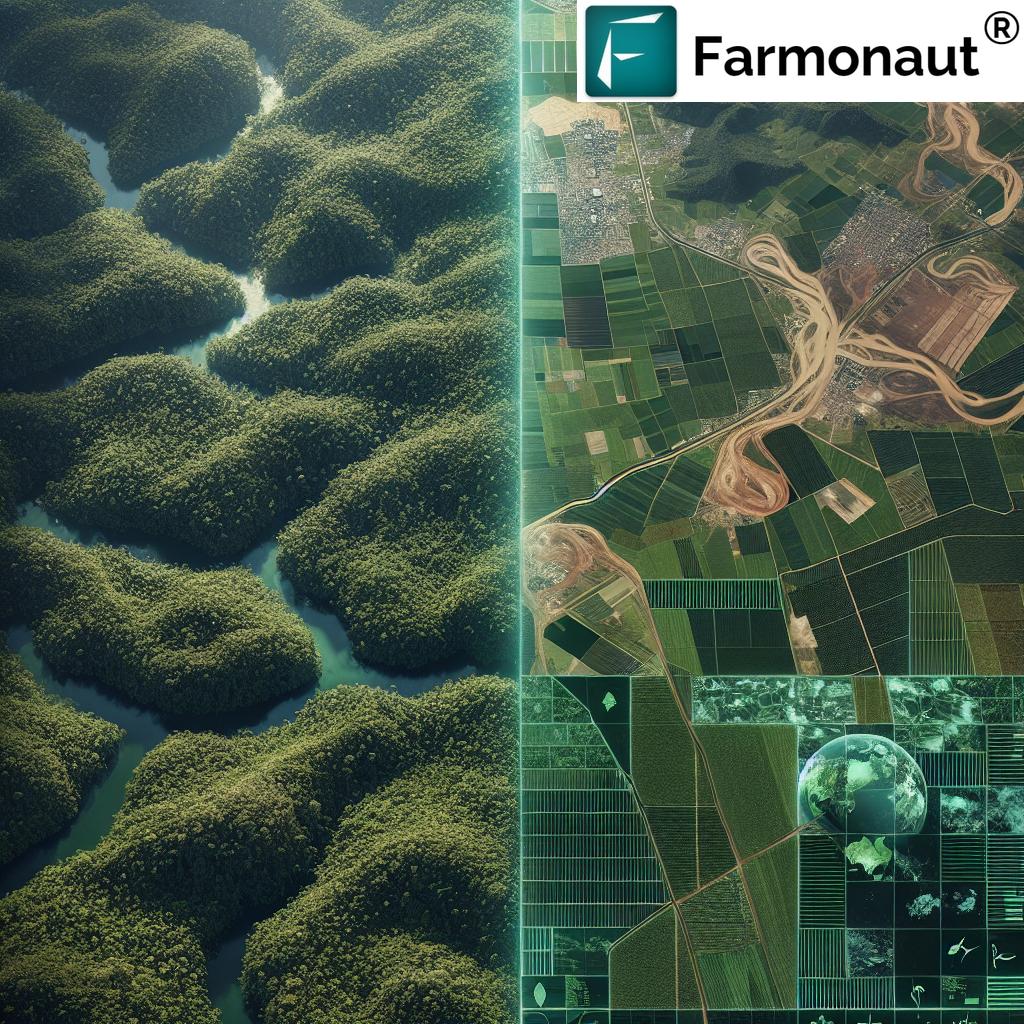
The Global Impact of EUDR
The EUDR’s influence extends far beyond European borders, reshaping global markets and agricultural practices worldwide. As one of the world’s largest trading blocs, the EU’s stance on deforestation-free products is set to create ripple effects across international supply chains.
- Influences global markets and trading practices
- Encourages adoption of sustainable farming methods worldwide
- Highlights the interconnectedness of global agricultural systems
This regulation underscores the importance of sustainable agriculture practices not just as an environmental imperative, but as a crucial factor in maintaining access to lucrative European markets.
Farmonaut’s Role in Sustainable Agriculture and Forest Conservation
At Farmonaut, we are at the forefront of the agricultural technology revolution, offering cutting-edge GIS and remote sensing solutions that align perfectly with the goals of the EUDR. Our technology provides innovative ways to monitor and ensure compliance with these new regulations, supporting businesses in their transition to more sustainable practices.
- Advanced satellite-based crop health monitoring
- AI-driven advisory systems for optimized farm management
- Blockchain-based traceability solutions for transparent supply chains
Explore our comprehensive solutions:
Our technology empowers farmers, agribusinesses, and policymakers to make informed decisions that support sustainable agriculture while preserving our vital forest ecosystems.
GIS Technology: The Cornerstone of Sustainable Agriculture
Geographic Information System (GIS) technology forms the backbone of modern sustainable agriculture practices. At Farmonaut, we harness the power of GIS to provide comprehensive insights into land use, crop health, and environmental impact.
- Real-time mapping of agricultural lands and forest areas
- Monitoring of land use changes and potential deforestation risks
- Integration of multiple data sources for holistic environmental assessment
Our GIS solutions enable precise monitoring of agricultural activities, helping to ensure compliance with the EUDR while optimizing crop yields and resource efficiency.
Remote Sensing: Eyes in the Sky for Forest Conservation
Remote sensing technology provides an invaluable tool in the fight against deforestation. Farmonaut’s advanced satellite imagery analysis offers unparalleled insights into forest cover changes, enabling early detection of potential deforestation activities.
- High-resolution satellite imagery for detailed forest monitoring
- Automated detection of forest cover changes
- Time-series analysis to track long-term trends in land use
By leveraging these technologies, we help businesses and governments maintain vigilant oversight of their supply chains, ensuring compliance with the EUDR’s strict requirements for deforestation-free products.
“Farmonaut’s GIS technology offers solutions for monitoring and ensuring compliance with the EU Deforestation Regulation across 100% of supply chains.”
Blockchain-Based Traceability: Ensuring Transparent Supply Chains
In the era of the EUDR, supply chain transparency is paramount. Farmonaut’s blockchain-based traceability solutions offer an immutable record of a product’s journey from farm to consumer, ensuring accountability at every step.
- Secure, tamper-proof records of product origins and processing
- Real-time tracking of goods through the supply chain
- Integration with GIS data for comprehensive supply chain oversight
Our blockchain technology provides the trust and verification necessary to meet the EUDR’s stringent requirements for deforestation-free supply chains.
AI-Driven Agricultural Advisory: Optimizing Sustainable Farming Practices
Farmonaut’s AI-powered advisory system, Jeevn AI, represents the cutting edge of agricultural technology. By analyzing vast amounts of data from satellite imagery, weather patterns, and historical crop yields, Jeevn AI provides personalized recommendations to farmers, promoting sustainable practices that align with EUDR goals.
- Customized crop management strategies to reduce environmental impact
- Precision agriculture techniques for optimal resource utilization
- Early pest and disease detection to minimize chemical interventions
Through Jeevn AI, we empower farmers to make data-driven decisions that not only comply with EUDR standards but also enhance productivity and profitability.
Carbon Footprint Monitoring: A Key to Sustainable Agriculture
As the EUDR emphasizes the link between deforestation and climate change, monitoring and reducing carbon emissions becomes crucial. Farmonaut’s carbon footprint tracking feature allows agribusinesses to measure and manage their environmental impact effectively.
- Real-time monitoring of greenhouse gas emissions from agricultural activities
- Identification of emission hotspots in the supply chain
- Data-driven strategies for carbon reduction and offset
By providing actionable insights on carbon emissions, we help businesses align their operations with global climate goals and EUDR requirements.
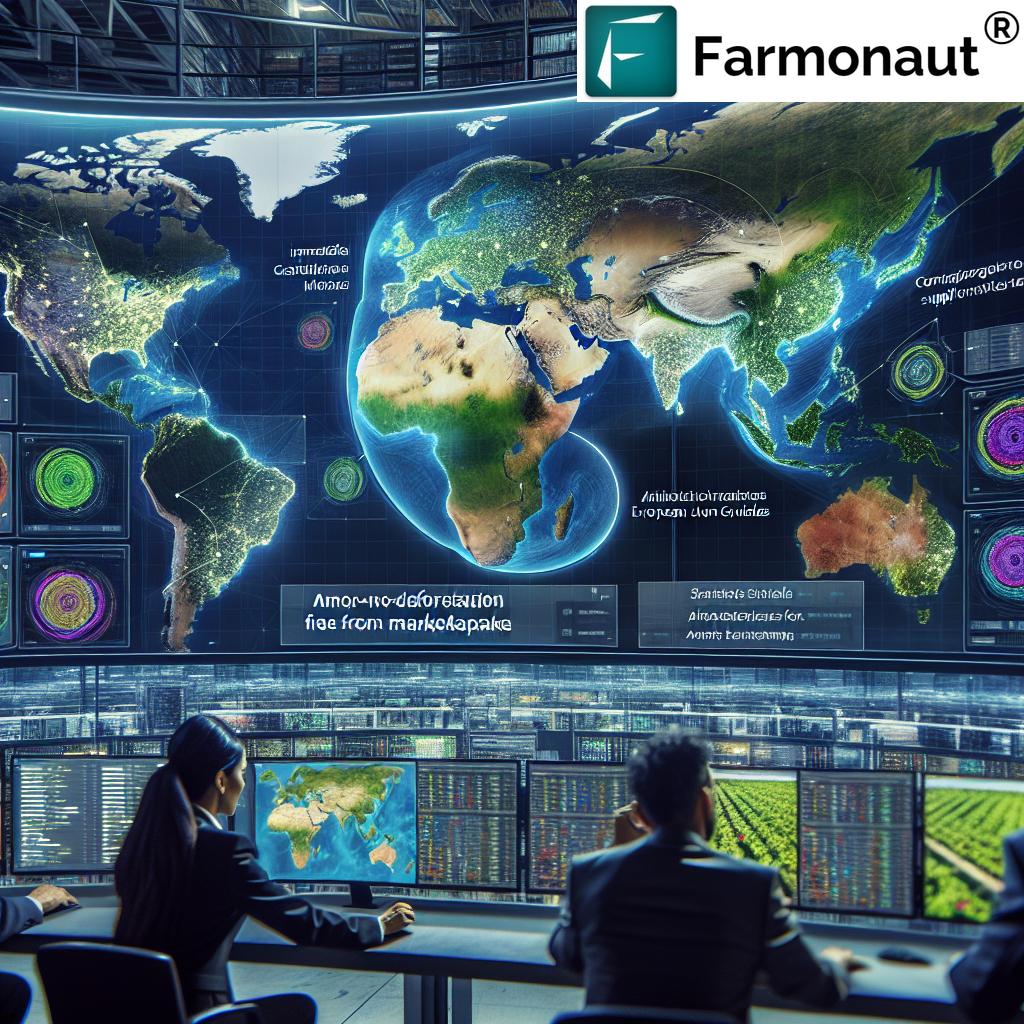
Challenges and Opportunities in EUDR Implementation
While the EUDR presents significant challenges for businesses, it also opens up new opportunities for innovation and sustainable growth. Farmonaut’s technologies are designed to address these challenges head-on, turning potential obstacles into avenues for improvement.
- Complex supply chain mapping and verification
- Adaptation of existing agricultural practices
- Integration of sustainability metrics into business operations
Our comprehensive suite of tools enables businesses to navigate these challenges effectively, ensuring compliance while driving operational efficiencies.
The Role of Financial Institutions in Combating Deforestation
Financial institutions play a crucial role in the fight against deforestation by committing to deforestation-free portfolios. Farmonaut’s technologies provide valuable tools for these institutions to assess and monitor the environmental impact of their investments.
- Risk assessment tools for evaluating deforestation risks in investment portfolios
- Monitoring systems for tracking compliance with sustainability commitments
- Data-driven insights for sustainable investment decision-making
By partnering with financial institutions, we contribute to a more sustainable and responsible financial sector that aligns with the goals of the EUDR.
The Future of Sustainable Agriculture under EUDR
As we look to the future, the implementation of the EUDR promises to reshape the landscape of global agriculture. Farmonaut is committed to staying at the forefront of this transformation, continually innovating our technologies to meet the evolving needs of sustainable agriculture and forest conservation.
- Ongoing development of more precise monitoring technologies
- Integration of machine learning for predictive analysis of deforestation risks
- Expansion of our services to support a wider range of sustainable agricultural practices
We envision a future where sustainable agriculture and forest conservation go hand in hand, supported by cutting-edge technology and data-driven decision-making.
Collaborative Efforts for Global Impact
The success of the EUDR and the broader goal of combating deforestation require collaborative efforts on a global scale. Farmonaut’s technologies facilitate this collaboration by providing a common platform for data sharing and analysis.
- Cross-border data sharing for comprehensive supply chain monitoring
- Collaboration between governments, businesses, and NGOs for effective policy implementation
- Global networks for sharing best practices in sustainable agriculture
Through these collaborative efforts, we can create a more sustainable and resilient global agricultural system that respects our planet’s forests and ecosystems.
EU Deforestation Regulation Impact on Key Agricultural Commodities
| Commodity | Estimated Annual EU Import Volume (tons) | Deforestation Risk Level | Key Producing Countries | Potential Impact on Supply Chain |
|---|---|---|---|---|
| Soy | 35 million | High | Brazil, Argentina, USA | Increased scrutiny on sourcing, potential shift to certified deforestation-free suppliers |
| Palm Oil | 6.5 million | High | Indonesia, Malaysia | Accelerated adoption of sustainable palm oil certification, potential price increases |
| Coffee | 3 million | Medium | Brazil, Vietnam, Colombia | Enhanced traceability requirements, focus on agroforestry practices |
| Cocoa | 1.5 million | High | Côte d’Ivoire, Ghana | Intensified monitoring of smallholder farms, investment in sustainable cocoa production |
| Timber | 20 million (cubic meters) | High | Russia, USA, Ukraine | Stricter verification of timber origins, potential shift to plantation-grown timber |
Conclusion: Embracing a Sustainable Future with Farmonaut
The EU Deforestation Regulation marks a significant milestone in the global effort to combat deforestation and promote sustainable agriculture. At Farmonaut, we are proud to be at the forefront of this transformation, offering cutting-edge GIS and remote sensing technologies that enable businesses to meet these new regulatory challenges while driving positive environmental change.
Our comprehensive suite of tools – from satellite-based crop monitoring to blockchain traceability and AI-driven advisory systems – provides the foundation for a more sustainable and transparent agricultural sector. As we move forward, we remain committed to innovating and expanding our services to meet the evolving needs of farmers, agribusinesses, and policymakers in this new era of environmental responsibility.
By embracing these technologies and the principles of sustainable agriculture, we can create a future where productive farming coexists harmoniously with thriving forests and ecosystems. Together, we can build a more sustainable, resilient, and prosperous agricultural sector that benefits both people and the planet.
Join us in this journey towards a greener future. Explore our solutions and see how Farmonaut can help you navigate the challenges and opportunities presented by the EU Deforestation Regulation.
Discover how Farmonaut can transform your agricultural practices:
- Web App: Launch Farmonaut Web App
- API Access: Explore Our API
- API Developer Docs: Read API Documentation
Farmonaut Subscriptions
Frequently Asked Questions
Q: How does Farmonaut’s technology help in complying with the EU Deforestation Regulation?
A: Farmonaut’s GIS and remote sensing technologies provide real-time monitoring of agricultural lands and forest areas, enabling businesses to track and verify that their supply chains are deforestation-free. Our blockchain-based traceability solutions ensure transparent and verifiable product journeys from farm to consumer.
Q: Can Farmonaut’s solutions be used by small-scale farmers?
A: Yes, Farmonaut offers scalable solutions suitable for farmers of all sizes. Our mobile apps and web platform provide accessible tools for crop monitoring and management, while our AI-driven advisory system offers personalized recommendations to optimize farming practices regardless of farm size.
Q: How does Farmonaut contribute to sustainable palm oil production?
A: Farmonaut’s satellite monitoring capabilities allow for precise tracking of palm oil plantations, helping to ensure they are not expanding into protected forest areas. Our traceability solutions also enable verification of sustainable palm oil sourcing throughout the supply chain.
Q: What role does AI play in Farmonaut’s agricultural solutions?
A: Our AI-driven Jeevn advisory system analyzes vast amounts of data from satellite imagery, weather patterns, and historical crop information to provide customized recommendations for sustainable farming practices. This helps farmers optimize resource use, reduce environmental impact, and improve crop yields.
Q: How does Farmonaut assist in carbon footprint reduction for agribusinesses?
A: Farmonaut’s carbon footprint tracking feature allows businesses to monitor and measure their greenhouse gas emissions in real-time. This data enables the identification of emission hotspots and facilitates the development of targeted strategies for carbon reduction, aligning operations with global climate goals and EUDR requirements.





